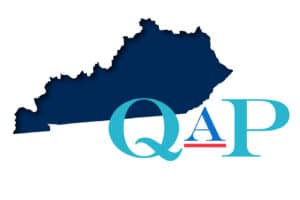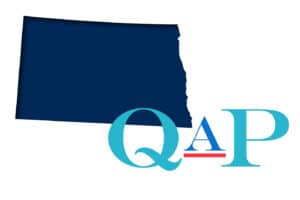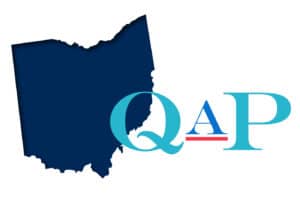| Good morning Program Participants and other Interested Parties,
If you missed THDA’s Tax Credit Committee and Board Meeting on Tuesday, you missed productive and positive outcomes for THDA’s multifamily housing programs. You also missed some “fast footwork” on my part, but that is another story. Amendments to the 2019-2020 Low Income Housing Credit Qualified Allocation Plan and the proposed 2019 Multifamily Tax-Exempt Bond Authority Program Description were approved by THDA’s Board of Directors on Tuesday. The 2019-2020 QAP is on its way to Governor Haslam for his signature. __________________________________________________________________ To recap, the changes to the 2019 MTBA Program Description after release of the TCC materials: Section 2: Definitions: Development Team – Includes any individual or member of the development team including Governors/Directors, Members and Managers/Officers of the Ownership Entity; Officers, Directors, and Stockholders of the Development Entity and Officers, Directors, and Stockholders of the Property Management Company. Section 3: Program Eligibility: B. Eligible Developments 4.b.All developments proposing single family units, duplexes, triplexes, and (REMOVING TOWNHOMES) must meet Visitability design requirements. E. Identity of Interests If an application for MTBA and Noncompetitive Housing Credits involves acquisition of land or buildings, the requirements specified in Section 42(d)(2) of the Code shall apply. To recap the changes to the 2019-2020 QAP after release of the TCC materials: Section 2: Definitions Development Team – Includes any individual or member of the development team including Governors/Directors, Members and Managers/Officers of the Ownership Entity; Officers, Directors, and Stockholders of the Development Entity and Officers, Directors, and Stockholders of the Property Management Company. Section 13: Threshold and Minimum Construction and Rehabilitation Requirements B. 3. All newly constructed single family units, duplexes, triplexes, and (REMOVING TOWNHOMES) must meet the following Visitability requirements. C. Existing Multifamily Housing Minimum Rehabilitation Requirements Initial Applications that propose rehabilitation must present a scope of work that meets the following: 1. Compliance with all Threshold Requirements. 2. Minimum rehabilitation costs equal to the greater of the per door costs in the Physical Needs Assessment or $25,000. 3. The replacement of any component of the building or site with a Remaining Useful Life, as specified in the Fannie Mae Expected Useful Life Table, which is incorporated in this QAP by reference. 4. Corrective actions for all deficiencies noted in the Physical Needs Assessment. 5. Substantially the same scope of work in all units including painting of the entire unit (all rooms and ceilings), flooring consistent throughout development, and matching cabinetry within each unit. 6. If roofs are to be replaced, roofing materials must be anti-fungal with a minimum 25-year warranty. 7. Replace and install new water supply fixtures and valves. 8. Replace all window blinds and exterior window screens. 9. Replace all damaged and worn interior doors, jams, frames, and hardware. 10. Existing exterior wooden stair systems may not be repaired. Instead they must be replaced in their entirety with new steel or concrete stair systems. 11. Replace all exteriors that are 90% vinyl with an estimated useful life of 15 years or less, it must be replaced with brick/stone veneer, stucco or fiber cement and/or hardiplank. D. For Multifamily Tax-Exempt Bond Authority and Noncompetitive Housing Credit Initial Applications proposing rehabilitation of Existing Multifamily Housing must present a scope of work that meets the following: 1. Compliance with all Threshold Requirements. 2. The replacement of any component of the building or site with a Remaining Useful Life of less than 15 years, as specified in the Fannie Mae Expected Useful Life Table, which is incorporated in this QAP by reference. 3. Substantially the same scope of work in all units including painting of the entire unit (all rooms and ceilings), flooring consistent throughout development, and matching cabinetry within each unit. 4. If roofs are to be replaced, roofing materials must be anti-fungal with a minimum 25-year warranty. 5. Existing exterior wooden stair systems may not be repaired. Instead they must be replaced in their entirety with new steel or concrete stair systems. 6. Replace all exteriors that are 90% vinyl with an estimated useful life of 15 years or less, it must be replaced with brick/stone veneer, stucco or fiber cement and/or hardiplank. Section 20: Noncompetitive Housing Credits Allocated to Developments Financed with Tax-Exempt Bonds C. Total Development Cost Limits Total Development Cost limits will be applied to all proposed developments requesting Noncompetitive Housing Credits at the time of Initial Application. The cost of issuance and any deferred portion of the developer fee over 15% will be excluded from these costs. ___________________________________________________________________ Updated THOMAS coding from the QAP and MTBA Program Description changes is being tested now however, we anticipate opening the 2019 Initial Application window by January 1, 2019. Also, updates are being made to the THOMAS Documents page which will incorporate the QAP and Program Description changes too. We are working towards an early December release of updates to the THOMAS Documents page. As we finalize our updates to THOMAS and the THOMAS Documents page, we will send out a notification BLAST. In addition, we presented amended language for Enterprise Green Communities Certification in the 2016, 2017, and 2018 QAPs as included in the release of the TCC materials. However, we asked the Board to allow staff the ability to grant extensions for the receipt of the Post-Build Certification or Post-Build Application submission receipt without imposing fees and/or Minor SAE penalties in situations where the development team is working with Enterprise Green but does not have the supporting documentation necessary for Final Application submission. We want our developers to submit their final applications timely. We also want our developers to complete the Post-Build Certification process without harming them with fees and/or penalties. If you submit your Final Application without the Post-Build Application submission receipt, please let your Allocation Coordinator know the status of your application submission. That will ensure we are all on the same page. And if you are experiencing delays with Enterprise Green Communities, please let us know too. We are in regular contact with the Enterprise Green Communities team and may be able to help. THDA received 9 fantastic Innovation Round Proposals for 2019. I read every proposal because I am not on an Evaluation team and honestly, I wish we could allocate all of them. The first round Evaluation will take place once we ship the QAP off to the Governor’s Office for his signature. We still anticipate meeting our December 3 notification deadline. THDA maintains an open cycle for the submission of Final Applications. However, we have a cut-off date for the receipt of Final Applications which must be issued IRS Form 8609s by February 28, 2019. Please check with your Allocation Coordinator clarify whether you must submit your Final Application by December 3rd. Remember, THDA maintains an open cycle for the submission of Final Applications. We can receive your Final Application on December 4th and it will not be subject to penalties or fees if the development’s IRS Forms 8609s do not have to be submitted to the Internal Revenue Service by February 28, 2019 and the credit period for the development does not start in 2018, instructions were sent out on the process for deferring the credit period in a Placed In Service survey sent by your allocation coordinator earlier this month. Multifamily Programs Compliance Team is finalizing our triannual onsite inspections for 2018. We have had a busy year. As we move back into the office and release final reports, remember the 2018 Owners’ Annual Certification of Compliance and Tenant Reporting will be due on February 15, 2019. We anticipate several OAC training sessions in December and will release that information by the end of this month. As we enter into the Thanksgiving season, I am truly grateful for your contributions for safe, sound, and affordable housing for low and moderate income Tennesseans. Donna Duarte
|
Related Posts

Kentucky Updates 2024 Multifamily Development Cost Containment Limits
The Kentucky Housing Corporation updated the cost containment limits for 2024.

Comments on North Dakota’s Action Plan Due May 13
The North Dakota Housing Finance Agency is accepting comments on its draft 2024 Annual Action Plan, which provides a summary of the actions, activities and specific federal and non-federal resources that will be used during the year to address priority needs and goals identified in the Consolidated Plan.

Ohio Board Meeting – April 17
The Ohio Housing Finance Agency will host a finance committee and board meeting on April 17, both in person (2600 Corporate Exchange Drive, Columbus, OH 43231) and virtually.

Virgin Islands HFA Appoints Eugene Jones Jr. Executive Director
Eugene Jones Jr. has been appointed executive director of the Virgin Islands Housing Finance Authority. Jones most recently served as executive director of the Atlanta Housing Authority and brings to his new role decades of experience working in housing agencies in cities, such as Chicago, Toronto, New Orleans and Detroit